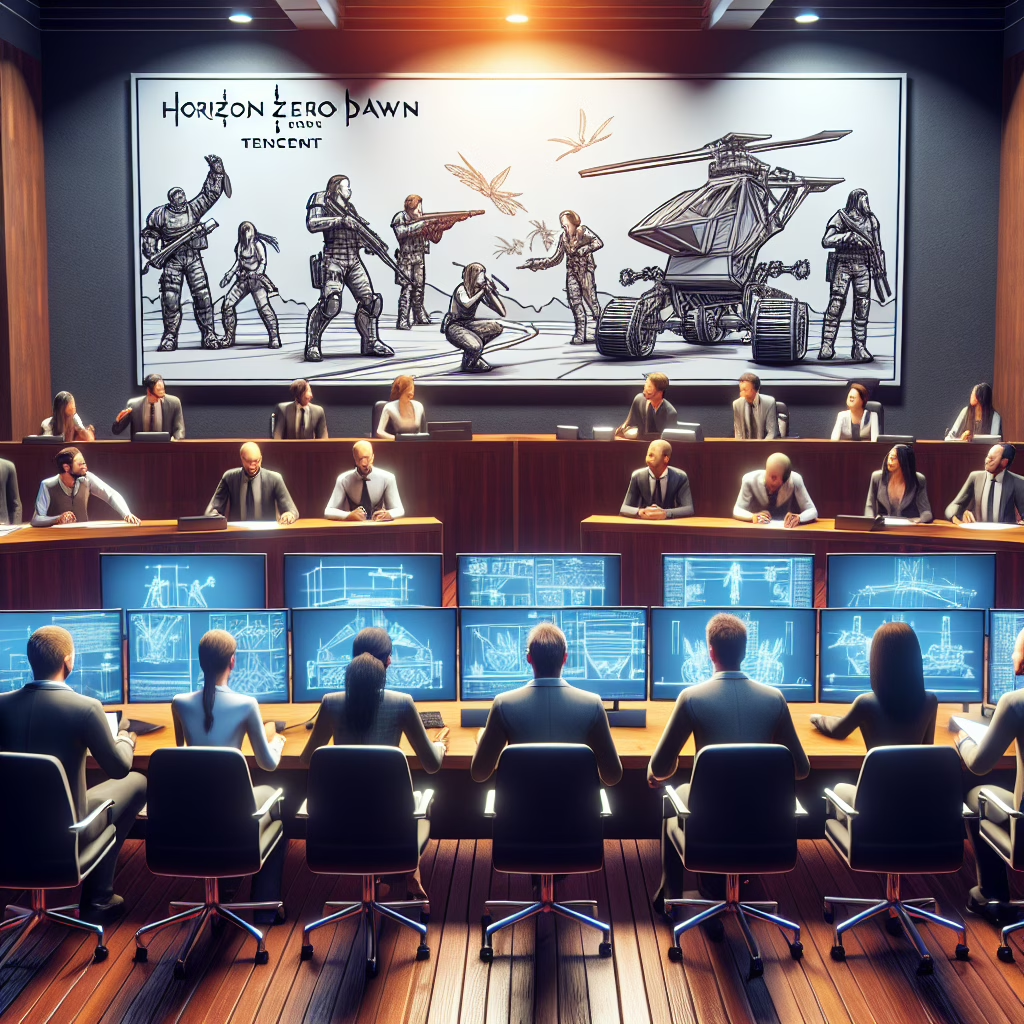In the ever-exciting world of gaming, where pixels collide and virtual worlds expand, Sony has decided to throw down the gauntlet. Yes, you heard it right! Sony is suing Tencent over a clone of their beloved game, Horizon Zero Dawn. If you thought legal battles were reserved for courtrooms and not the highlands of video game landscapes, think again!
The Cloning Conundrum: What Happened?
Imagine a world where your favorite characters are replicated like cheap knock-offs at a flea market. That’s precisely what Sony feels has happened with its critically acclaimed title, Horizon Zero Dawn. According to reports, Tencent’s new game bears an uncanny resemblance to Aloy’s epic adventure, complete with robotic dinosaurs that look suspiciously similar to those in the original. Talk about a doppelgänger!
But why is this important? Well, in a world where originality is king and imitation often leads to litigation, this lawsuit is more than just a squabble over pixels. It raises vital questions about creativity and intellectual property in gaming. Are clones just flattery in disguise, or do they represent a grave threat to innovation?
The Legal Landscape of Gaming
As the legal wheels turn, Sony’s move isn’t merely about protecting their turf; it’s about setting a precedent. The gaming industry thrives on fresh ideas and unique experiences. When a giant like Tencent tries to sidestep this by cloning another company’s success, it raises eyebrows and alarms alike. This is especially pertinent in a field where developers pour their hearts and souls into creating engaging and original content.
In 2025, we find ourselves at a crossroads where copyright laws in gaming are still playing catch-up with technology. What might seem like harmless fun could lead to significant ramifications for developers everywhere. So while Sony and Tencent duke it out in the courts, let’s take a moment to reflect on what this means for the future of our favorite pastime.
Why This Matters for Gamers
For gamers worldwide, this isn’t just another corporate spat; it’s about the games we love and the experiences they provide. We all have that one game that resonates deeply with us—perhaps it’s because of its storytelling or its stunning visuals. When developers push boundaries and innovate, they elevate the entire medium.
- The adventure of Aloy in Horizon Zero Dawn is a prime example of storytelling done right.
- Impeccable graphics immerse players into a world of towering machines and lush landscapes.
- Engaging gameplay mechanics enrich the experience, allowing gamers to explore their creativity.
However, when clones emerge from the shadows, they risk diluting that creativity. Imagine if every blockbuster title spawned ten imitators—gaming would quickly become a sea of sameness! And nobody wants that.
The Future: Innovation or Imitation?
The ongoing tussle between Sony and Tencent could serve as a wake-up call for game developers everywhere. It’s high time for the industry to engage in meaningful conversations about intellectual property rights and creative integrity.
So what does this mean for you as a gamer? It means supporting developers who dare to be different! When you purchase games that prioritize originality over imitation, you’re voting with your wallet for innovation. By backing studios that create unique worlds and narratives, you help sustain the richness of gaming culture.
This lawsuit could reshape how future games are developed and marketed. Will we see stricter measures against cloning? Or will it remain business as usual? Only time will tell!
Conclusion: Join the Conversation!
As we watch this drama unfold, one thing is certain: the gaming community will be buzzing about it for some time to come. So what do you think? Should Tencent have been more original? Is there room for clones in our beloved gaming universe? We’d love to hear your thoughts! Please share them in the comments below!
A huge thank you to Engadget for their insightful coverage on this topic. For more information on the implications of such legal actions, you might also find it interesting to read about Sony’s lawsuit against Tencent, illustrating the delicate balance between innovation and imitation.

